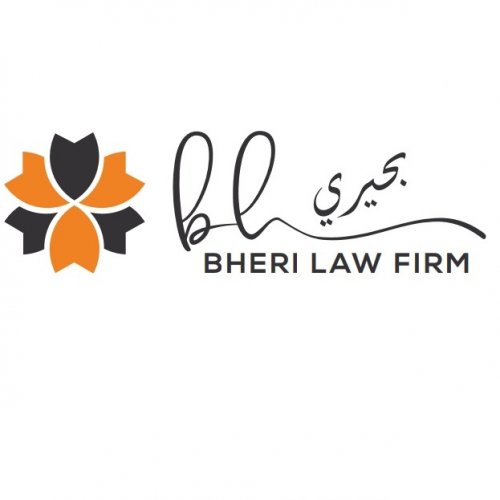Best Animal Law Lawyers in Tripoli
Share your needs with us, get contacted by law firms.
Free. Takes 2 min.
List of the best lawyers in Tripoli, Libya
About Animal Law in Tripoli, Libya
Animal Law in Tripoli, Libya, is an emerging field focusing on the protection and welfare of animals under human influence. With growing awareness regarding animal rights, there has been a gradual development of legal frameworks addressing issues such as animal cruelty, welfare standards, and protection of wild and domesticated animals. These laws are designed to ensure humane treatment, regulate ownership responsibilities, and protect against mistreatment or exploitation.
Why You May Need a Lawyer
There are several scenarios where individuals and organizations might seek the assistance of a lawyer specializing in Animal Law. These situations include disputes involving pet ownership or custody, allegations or defenses against charges of animal cruelty, guidance on compliance with animal welfare standards, representation in legislative advocacy for better animal protection laws, or resolving conflicts arising from wildlife conservation efforts. Legal expertise is invaluable in navigating these complex issues and ensuring compliance with existing laws.
Local Laws Overview
The legal framework surrounding Animal Law in Tripoli is shaped by national policies along with local ordinances. Key aspects include the prevention of animal cruelty, regulations on pet ownership, and guidelines for businesses dealing with animals such as zoos and veterinary clinics. Wildlife protection laws also play a significant role, safeguarding natural habitats and regulating hunting activities. Animal rights advocacy continues to push for more comprehensive laws that further animal welfare and protection.
Frequently Asked Questions
What constitutes animal cruelty in Tripoli?
Animal cruelty in Tripoli is generally defined as any action or neglect that causes unnecessary suffering or harm to an animal. This can include physical abuse, neglect of basic needs, and exploitation.
Are there specific licensing requirements for pet ownership?
Yes, pet owners may be required to register their pets with local authorities, ensuring they meet vaccination and health standards necessary for public safety and animal welfare.
How are disputes over pet ownership resolved?
Disputes over pet ownership can be resolved through mediation or in civil court, where documentation of ownership, such as purchase agreements and veterinary records, may be presented.
What legal protections exist for wildlife in Libya?
Libya has laws outlawing illegal hunting and trade of protected species, as well as regulations aimed at conserving natural habitats and biodiversity.
Can I be held liable for a pet-related accident?
Pet owners can be held liable if their pet causes harm or damage due to negligence or lack of proper control, underscoring the importance of responsible pet ownership.
What are the penalties for violating animal welfare laws?
Penalties for violating animal welfare laws can range from fines and community service to more severe consequences such as imprisonment, depending on the severity of the offense.
Are there any support organizations for animals in Tripoli?
Yes, there are several non-governmental organizations and advocacy groups in Tripoli focusing on animal welfare, rescue operations, and raising public awareness about animal rights.
How are veterinary services regulated?
Veterinary services are regulated under health and safety standards to ensure the well-being of animals, including licensing requirements for veterinary practitioners and clinics.
What are the key considerations for businesses dealing with animals?
Businesses such as pet shops, farms, and zoos must comply with regulations regarding animal welfare, sanitary conditions, and public safety, along with obtaining the required licenses and inspections.
Is there a legal process for adopting or importing animals?
The adoption or importation of animals involves adherence to specific procedures, including health inspections, permits, and compliance with quarantine requirements to ensure the animals are free from diseases and fit for adoption.
Additional Resources
For those seeking more information or assistance, consider reaching out to the Ministry of Agriculture, Livestock, and Marine Resources in Libya, which oversees animal welfare and agricultural practices. Additionally, local non-profits focused on animal rights can provide support, as well as international organizations advocating for animal protection and legal rights.
Next Steps
If you require legal assistance in Animal Law, it is advisable to consult with an attorney specializing in this field to navigate the complexities effectively. Preparing relevant documents and understanding your rights and obligations can help you build a strong case or defense. Organizations and advocacy groups can also offer guidance, but for formal legal proceedings, professional legal counsel is recommended.
Lawzana helps you find the best lawyers and law firms in Tripoli through a curated and pre-screened list of qualified legal professionals. Our platform offers rankings and detailed profiles of attorneys and law firms, allowing you to compare based on practice areas, including Animal Law, experience, and client feedback.
Each profile includes a description of the firm's areas of practice, client reviews, team members and partners, year of establishment, spoken languages, office locations, contact information, social media presence, and any published articles or resources. Most firms on our platform speak English and are experienced in both local and international legal matters.
Get a quote from top-rated law firms in Tripoli, Libya — quickly, securely, and without unnecessary hassle.
Disclaimer:
The information provided on this page is for general informational purposes only and does not constitute legal advice. While we strive to ensure the accuracy and relevance of the content, legal information may change over time, and interpretations of the law can vary. You should always consult with a qualified legal professional for advice specific to your situation.
We disclaim all liability for actions taken or not taken based on the content of this page. If you believe any information is incorrect or outdated, please contact us, and we will review and update it where appropriate.









